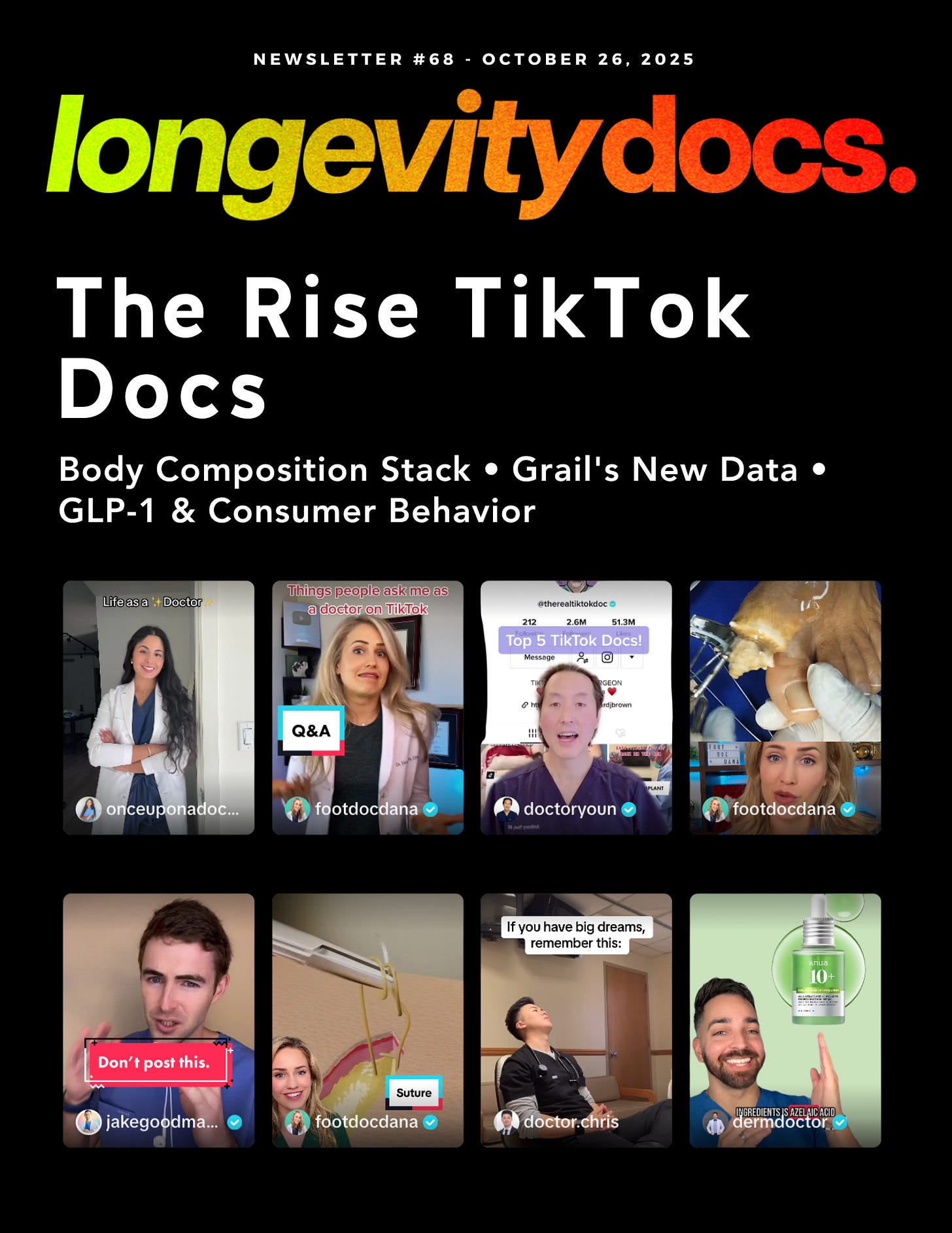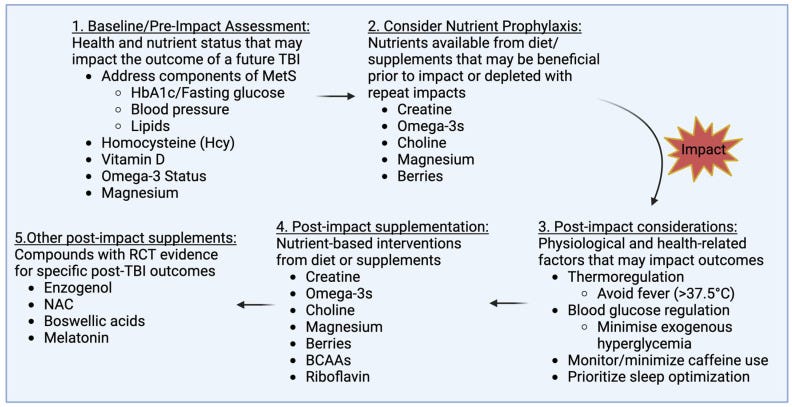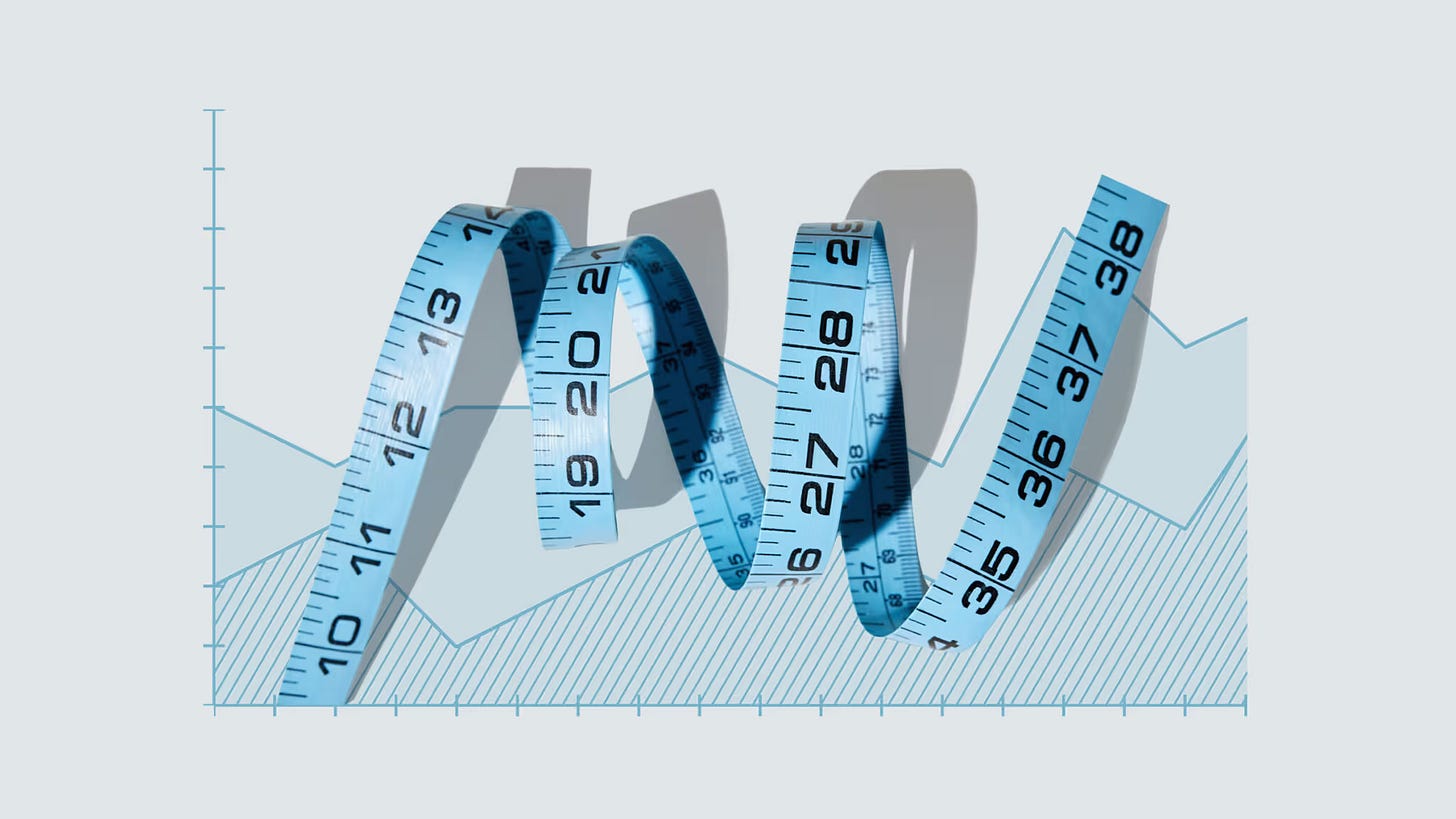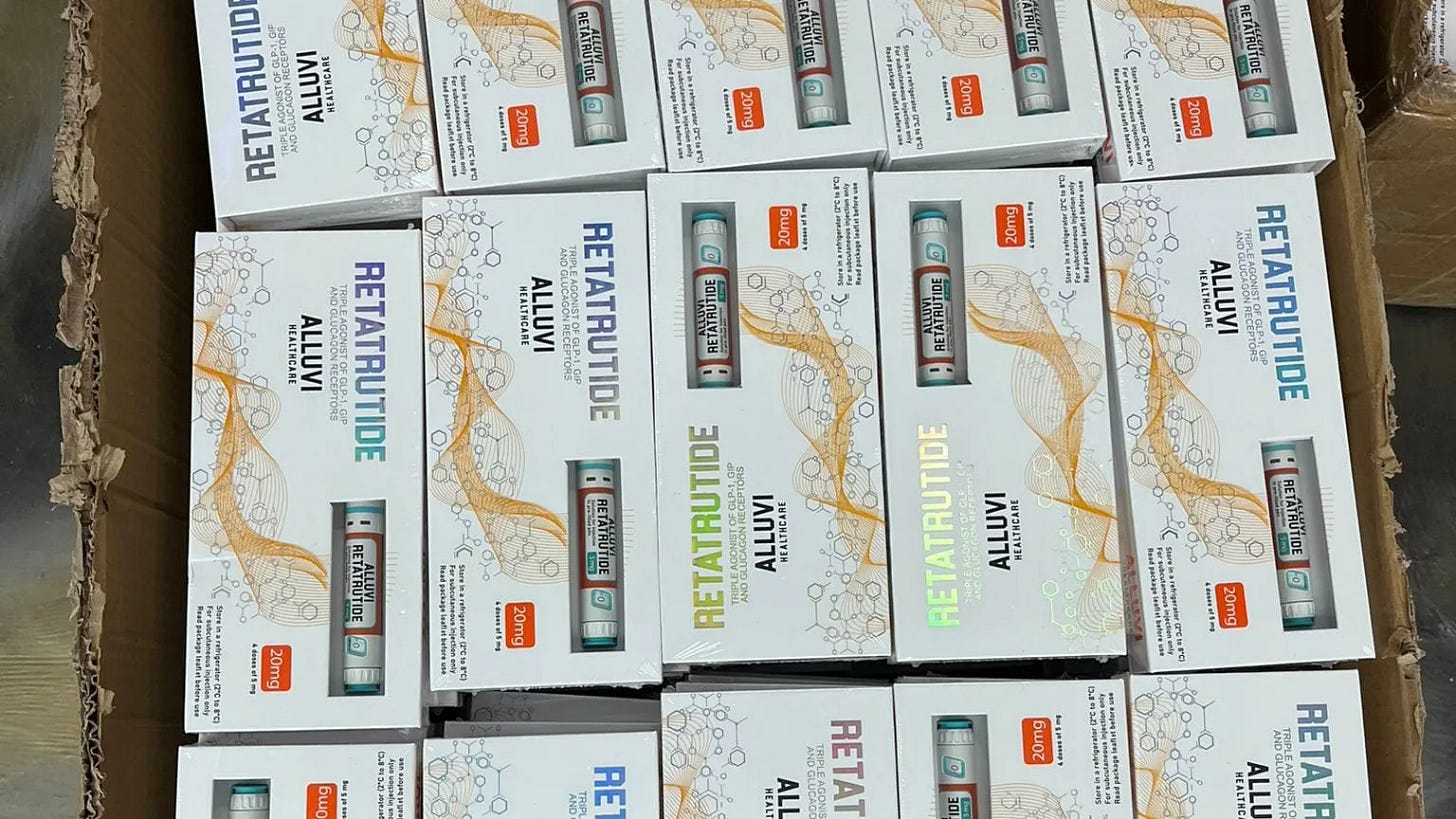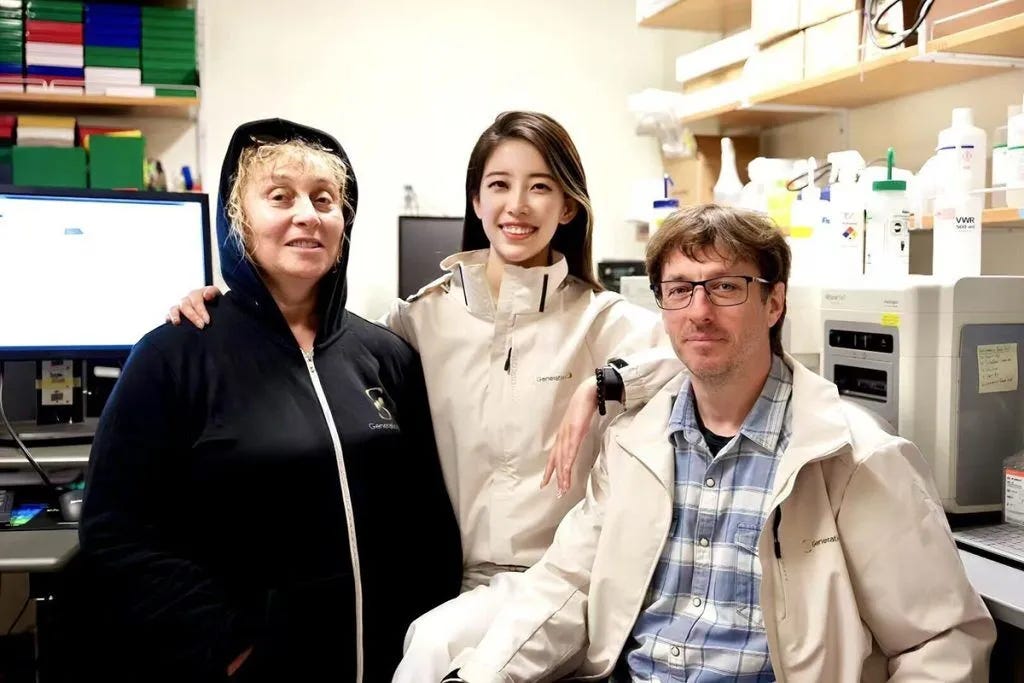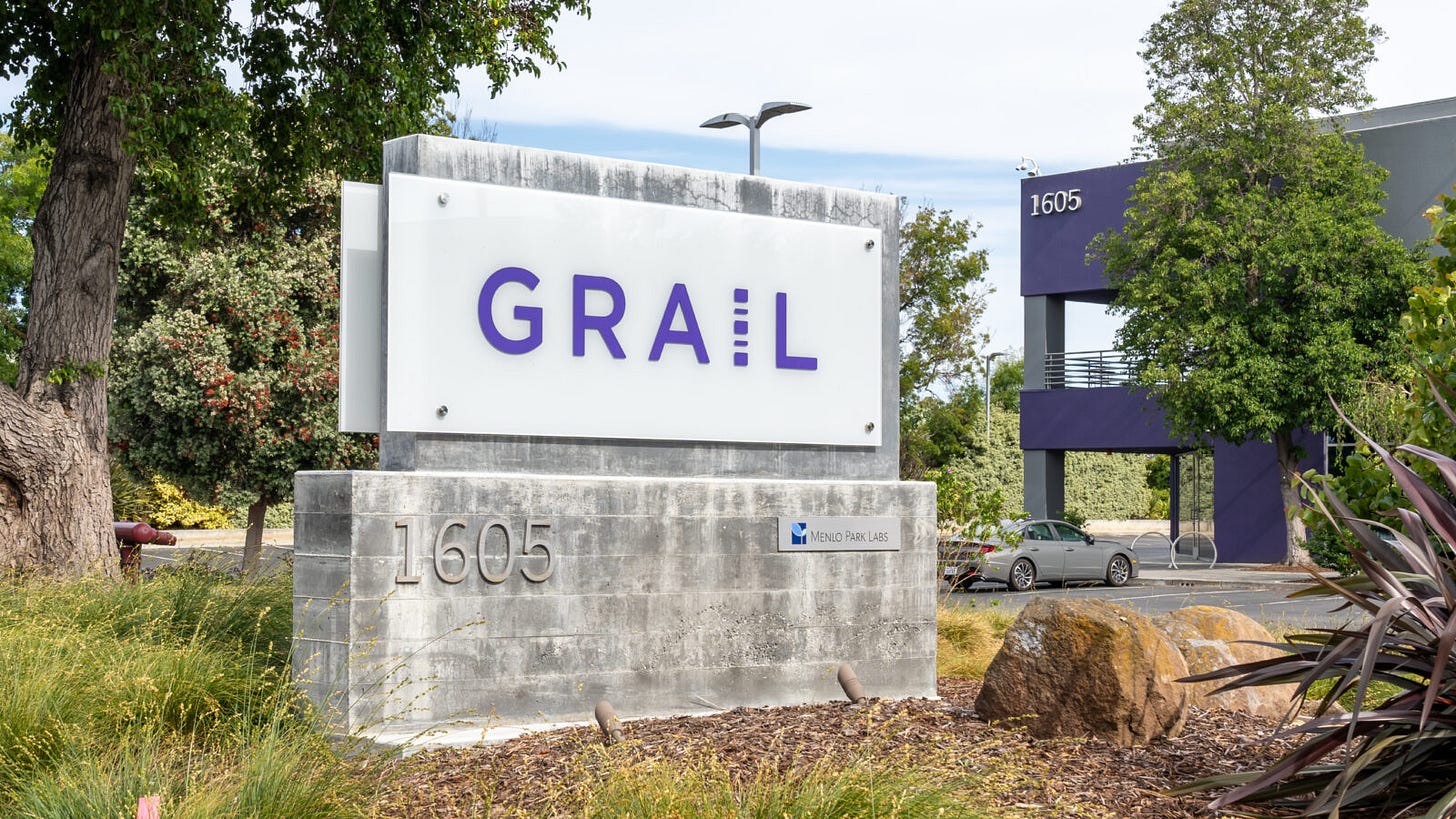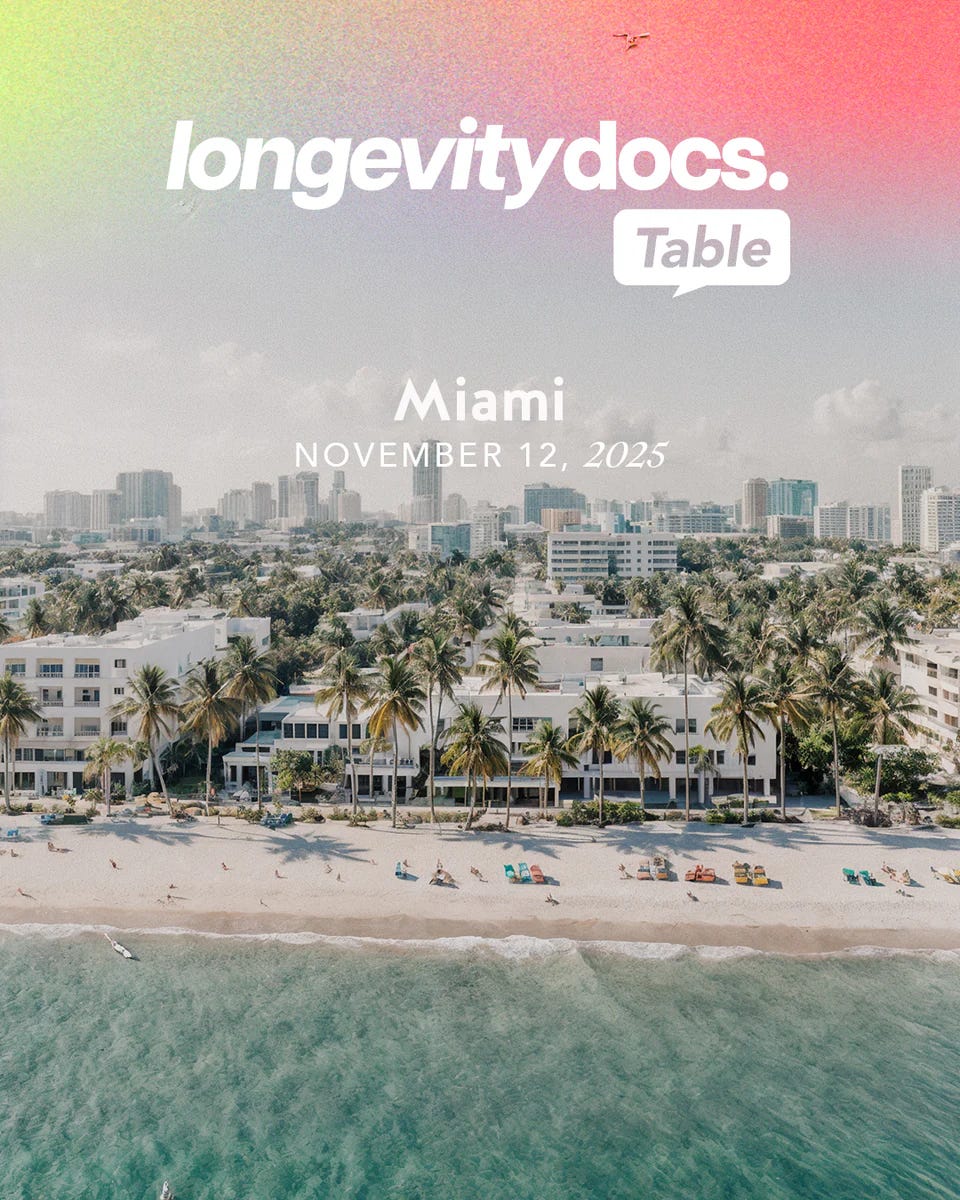Rise of TikTok Docs • Body Composition Stack • Grail's New Data • GLP-1 & Consumer Behavior
Issue 68: The front page of longevity medicine - curated by doctors, for doctors.
Hey Doc,
I’m in France after a few days in Riyadh for the Zenos Health Summit, where longevity has become a real topic of conversation, among local doctors, entrepreneurs, and even the public sector.
What’s interesting to me is how the conversation became global. There’s excitement everywhere: information, technologies, companies popping up left and right. But the loudest voices setting the tone? They’re on Instagram, TikTok, podcasts, really in clinical and research.
Can they be trusted? And what’s our role as physicians in all this?
I don’t have the answers in this edition, but I think these are questions we need to start discussing.
Healthy Sunday!
PS: Many Longevity Docs in Saudi Arabia to democratize longevity literacy. Love our community!
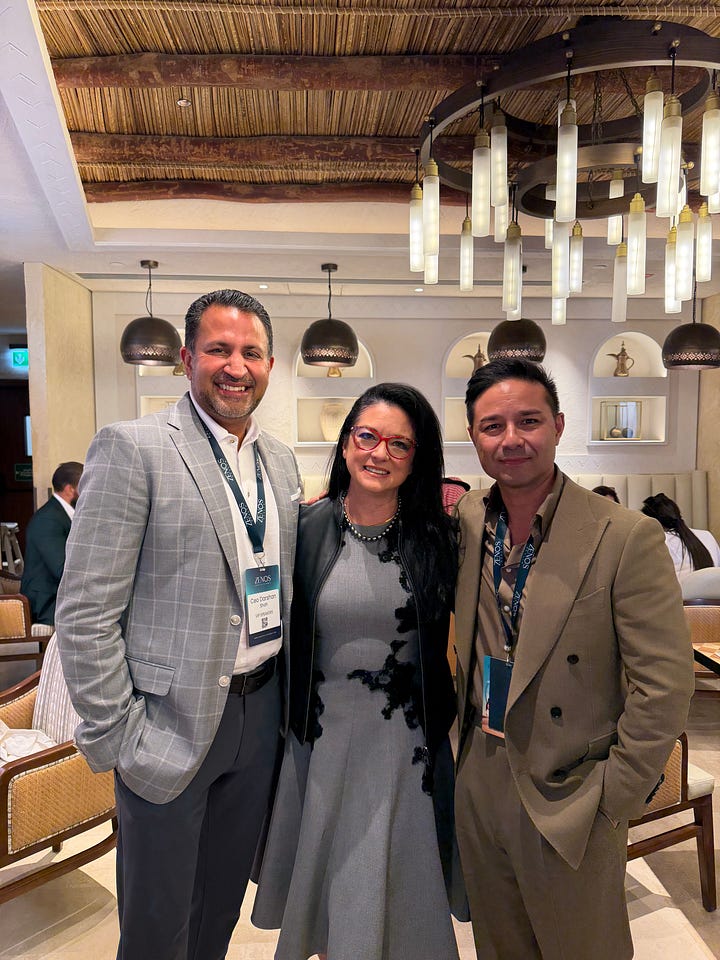
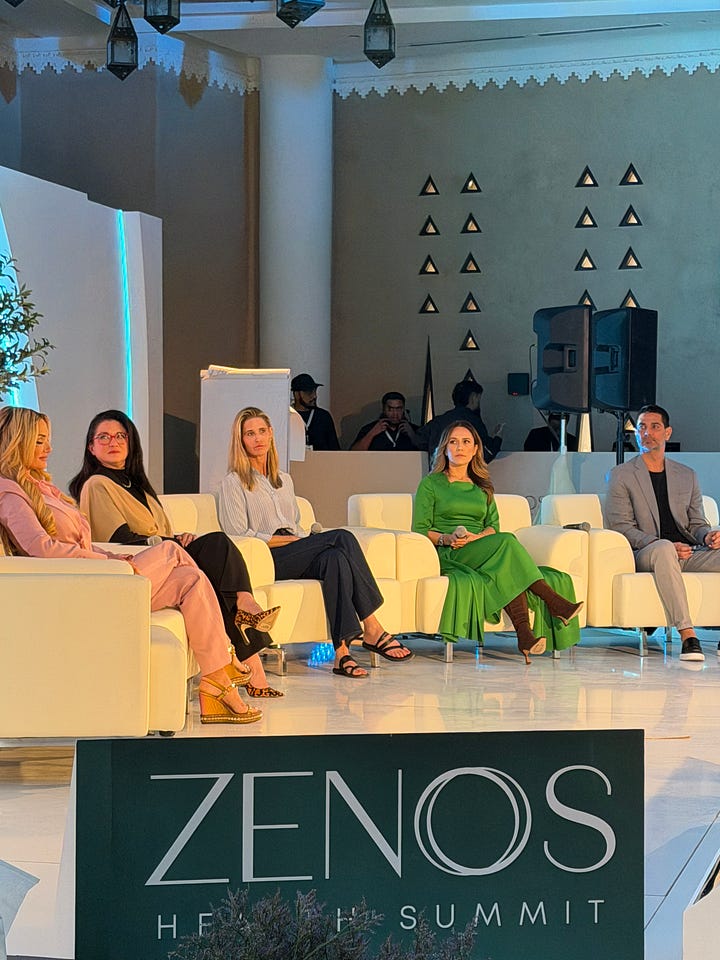
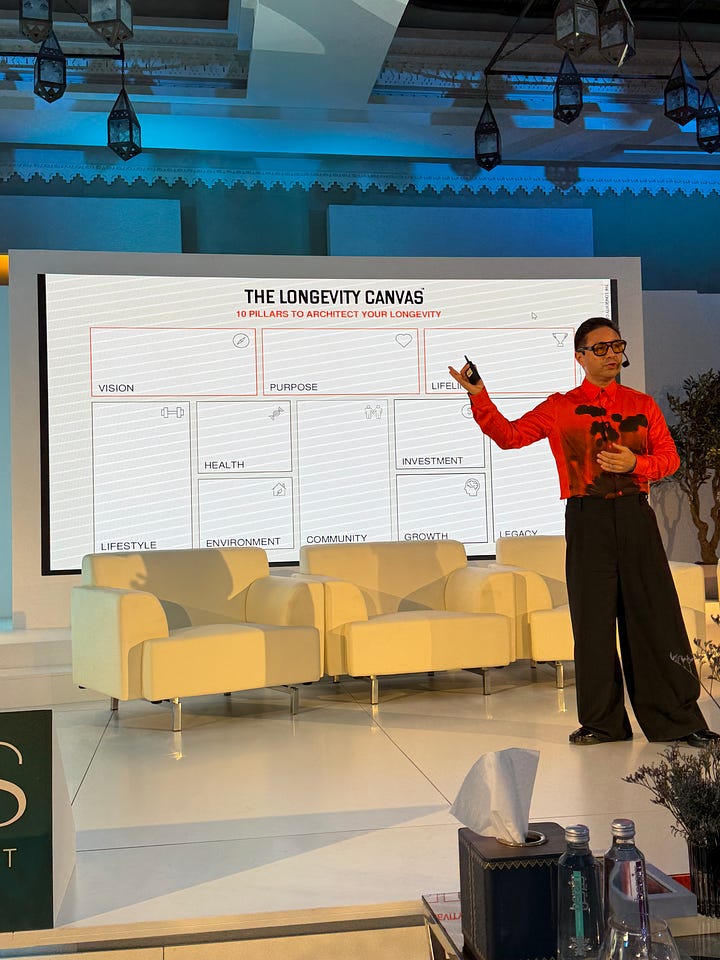
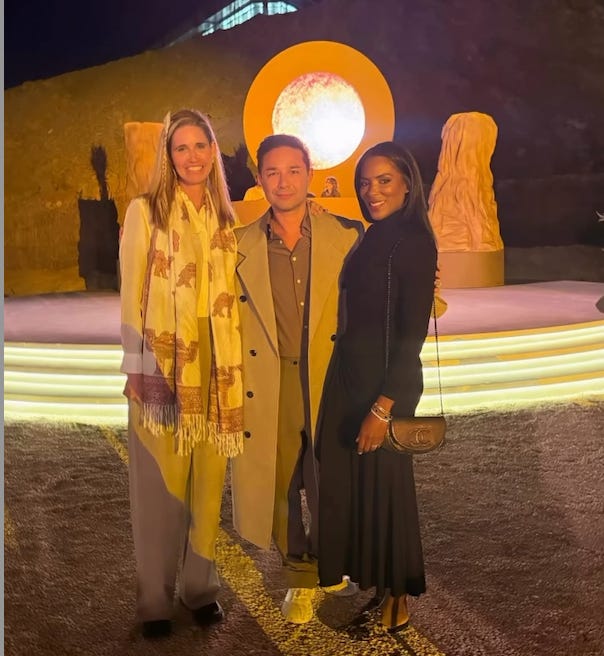
Dr. David Luu
Founder, Longevity Docs
www.longevitydocs.org
In this week newsletter:
Cover Story: Tik Tok Medicine
Buzz in the Chat: Body Composition Gold Standard • Liquid Biopsy • Rapamycin & LDN Responders
Research Radar: Pathfinder 2 • TBI
Longevity in the News: GLP-1 & Consumer Behavior •
Longevity Intelligence: Generation Labs • Grail
Each week, I try to explore one idea that could advance longevity medicine and hopefully support physicians in bringing it to life.
The Rise of TikTok Medicine
A few years ago, we were worried about “Doctor Google.”
Now we have “TikTok Docs”
Medicine didn’t disappear with, newspapers, blogs or tweets, and it won’t disappear with reels. But the platform has changed the game: information is instant, emotional, and often viral before it’s verified.
And when it comes to longevity, it feels like everyone has an opinion… expert or not, licensed or not.
We wouldn’t take flying lessons from someone who isn’t a pilot.
We wouldn’t build a house designed by someone who isn’t an architect.
So why do we trust our health (our most valuable asset) to whoever has the most followers?
That’s the paradox of modern wellness: the higher the stakes, the lower the filter.
The question isn’t whether TikTok medicine is good or bad.
It’s what it reveals about where patients are looking for health literacy and why they’re not hearing it from us.
Why “TikTok Medicine” Exist
Health curiosity is booming.
People are more aware of their biology, biomarkers, and potential to live longer and better.Health education escaped the clinic.
The internet democratized information. Wellness creators simply filled the communication gap doctors left open.Doctors rarely teach publicly.
Time pressure, fear of regulation, and lack of media skills keep most physicians offline, leaving space for louder voices.Innovation outpaces consensus.
Longevity science evolves faster than official guidelines, and doctors who ignore it risk sounding outdated.Patients will follow whoever educates them.
If credible physicians don’t show up, algorithms will decide who becomes the next health authority.
The Hidden Cost of “TikTok Medicine”
Science gets oversimplified.
Medicine is complex, but 15-second clips turn nuanced studies into catchy soundbites that distort the evidence.Risks rarely make the edit.
Supplements and drugs aren’t harmless: interactions, side effects, and false positives can easily be overlooked.Influence blurs into promotion.
When credibility meets promo codes, products spread faster than proof, often without real data behind them.Research moves faster than posts.
Science evolves daily, but online content freezes it in time. Without context, early findings become “facts.”Quick fixes replace real outcomes.
Viral wellness tips chase symptoms, not systems. True longevity requires monitoring, personalization, and expertise.
So… Is “TikTok Medicine” Good or Bad?
Both and neither. It’s inevitable. The problem isn’t that influencers exist.
It’s that physicians haven’t yet reclaimed their role as educators.
Health literacy is no longer something we do inside the clinic. It’s something we must do for the world: visibly, simply, and consistently.
When doctors teach, explain, and contextualize, TikTok Medicine becomes a tool not a threat.
The Rise of the Educator-Physician
The next generation of longevity doctors will master both sides: science and storytelling.
They’ll talk biomarkers and aging mechanisms with simplicity and empathy
They’ll translate complex research into clarity the public can act on.
That’s why the Certified Longevity Doctor (CLD) program exists: to train physicians in protocols, communication, business, and clinical leadership in the age of TikTok Medicine.
We are living in a moment of cultural shift in medicine, and I’m super excited about it!
Every week, the Longevity Docs WhatsApp group feels like a front-row seat to the future of medicine. Here’s what had doctors buzzing:
Body Composition: What’s the Gold Standard?
What Docs Are Saying
“InBody is good for trends, but hydration throws it off. DEXA is still my annual audit.”
“Styku’s 3D visuals make patients feel the progress—even if it’s not as precise.”
“SECA is underrated. It’s less sexy but often more accurate than InBody.”
“BodySpec is doing mobile DEXA scans for under $50. That’s game-changing.”
“We’re using all three—InBody for weekly trends, Styku for visuals, and DEXA for validation.”
Clinics are diversifying their toolkit. InBody, Styku, SECA, BodySpec, and Scanletics are the names that kept coming up. Yet no one agrees on a universal standard.
Why It Matters
Body composition has become the vital sign of longevity. But between patient expectations, cost, and accuracy, clinics are struggling to build consistent protocols.
Hydration, calibration drift, and algorithm differences create 10–20% variability, enough to undermine trust. Meanwhile, low-cost mobile DEXA services are democratizing access and setting a new benchmark.
Key Takeaways
Weekly BIA for trends, quarterly 3D optical, annual DEXA as baseline.
Standardize fasting, hydration, and timing to reduce error.
Train your staff. Consistency of operator > brand of device.
Use data wisely. Patients love visuals, but clinicians need validated metrics.
Liquid Biopsy & Multi-Cancer Detection: Promise or Premature?
What Docs Are Saying
“Galleri is the leader right now, the site-of-origin signal is actually useful.”
“The tests are easy, but the downstream workup is messy and expensive.”
“Pathfinder’s RNA-based approach could be more actionable, but data’s limited.”
“Patients love the idea of a one-tube cancer screen, but do they understand the false positives?”
“We need a registry to see if this actually improves outcomes, not just detects earlier.”
Docs are intrigued but cautious. Galleri dominates early adoption. Others are experimenting with ctRNA-based tests like Pathfinder. SM shared a detailed investor thesis on MCED, sparking debate about practicality and payer acceptance.
Why It Matters
Liquid biopsies are the next frontier in preventive oncology, but real-world utility is lagging behind marketing. False positives can lead to cascades of unnecessary scans. Yet, when used in high-risk or executive health programs, MCED can reveal cancers before imaging catches them.
Key Takeaways
Set expectations. These tests screen, they don’t diagnose.
Targeted use. Focus on >45 or family-history-positive patients first.
Integrate workflows. Pre-test counseling → test → reflex imaging plan.
Track outcomes. A shared registry could identify benefits, harms, and cost-effectiveness.
Stay skeptical. Follow peer-reviewed performance data, not marketing decks.
Rapamycin & LDN Responders: Predictive Biomarkers?
What Docs Are Saying
“About 20–30% of ME/CFS patients respond to rapamycin like it’s magic.”
“Same pattern with LDN, some super responders, others nothing.”
“I’d love to know if the non-responders to rapa are the ones who respond to LDN or amlexanox.”
“It’s like a roulette. We need biomarkers to predict who benefits.”
“Amatica’s actually working on this exact problem.”
Severals Docs sparked a deep discussion on new data: a Translational Medicine paper on rapamycin for ME/CFS and the LDN–TRPM3/NK cell mechanism. Docs shared anecdotal 20–30% “miracle” response rates, and equal non-response. The chat quickly evolved into talk of phenotyping and registry-building.
Why It Matters
The future of longevity medicine lies in predictive personalization—matching molecular signatures to therapeutic responses. ME/CFS may be the proving ground. The same logic will soon apply to rapamycin, senolytics, peptides, and mitochondrial therapies.
Key Takeaways
Document responses. Track dose, duration, and objective metrics (HRV, VO₂, labs).
Test hypotheses. Explore TRPM3/NK cell, inflammatory cytokines, and mitochondrial biomarkers.
Create shared data. Build a minimal common dataset to identify patterns.
Ethical practice. Clarify informed consent when using off-label or experimental agents.
Join the debate in the Whatsapp group
Longevity Docs is a highly vetted, invitation-only community for physicians shaping the future of longevity medicine. Apply online and connect 1:1 with our team
Each week, I highlight a few studies that caught our eyes and could shape the future of longevity medicine.
PATHFINDER 2: A prospective study to evaluate safety and performance of a multi-cancer early detection test in a population setting
The PATHFINDER II study evaluated the Galleri® multi-cancer early detection blood test in nearly 24,000 adults over 50 with no cancer symptoms. The test showed very high specificity (99.6%) and positive predictive value (61.6%), detecting 133 cancers, most of which were early-stage and in organ types that lack standard screening tests. When added to guideline-recommended screening, the test increased screen-detected cancers nearly seven-fold, with a median time to diagnosis of 46 days and a low rate of unnecessary invasive procedures. Cancer Research
MRI-based multi-organ clocks for healthy aging and disease assessment
Researchers developed seven MRI-based biological aging clocks for different organs (brain, heart, liver, kidneys, spleen, pancreas, and adipose tissue) using data from over 300,000 individuals. These clocks were linked to plasma proteins, metabolites, and genetic variants, revealing both organ-specific and cross-organ aging patterns. The study identified nine potential drug targets for anti-aging therapies and showed that these aging markers can predict future disease risk and mortality. Nature
Mitigating Traumatic Brain Injury: A Narrative Review of Supplementation and Dietary Protocols
Traumatic brain injuries are a leading cause of disability worldwide. Emerging research suggests certain supplements (like creatine, omega-3s, and melatonin) may help reduce inflammation, protect brain tissue, and support recovery after head trauma. This review explores how targeted nutrition could become a practical tool for both preventing and treating TBIs. Nutrients
The role of lifestyle interventions in symptom management and disease modification in Parkinson’s disease
Emerging evidence indicates that sustainable lifestyle changes - such as increasing physical activity, adopting healthy dietary patterns, and managing stress - can provide symptomatic benefits and potentially slow neurodegeneration in Parkinson’s disease. Lancet Neurology
I comb through the mainstream headlines, handpick the most relevant longevity stories.
How GLP-1 Medications Are Changing Consumer Behavior
GLP-1 drugs like Ozempic are triggering a profound shift in consumer behavior: reducing appetite, reshaping spending, and redefining identity and lifestyle choices.
What began as a medical innovation is now disrupting industries from food and fashion to travel and wellness. This “appetite economy” may rival the smartphone era in scale, reprogramming desire itself. Harvard Business Review
Patients Are Diagnosing Themselves With Home Tests, Devices and Chatbots
People increasingly turn to do-it-yourself healthcare amid long waits for medical appointments and a rise in self-care options. WSJ
First raid on UK illegal weight loss drug factory
UK authorities shut down the country’s first illegal weight-loss drug lab, seizing over 2,000 fake GLP-1 pens and raw ingredients worth £250,000. Officials warned the untested products were potentially deadly, calling it the largest global seizure of illicit weight-loss drugs to date. BBC
Sweden: The country ‘prescribed’ by doctors
Sweden’s new tourism campaign, “The Swedish Prescription,” playfully positions the country as the first destination doctors can “prescribe” for wellbeing. BBC
Every week, I track the biggest moves in longevity: new funding rounds, partnerships, product launches, and key hires.
Generation Lab raises $11m to advance “longevity diagnostics”
Biological age test that measures ‘biological noise’ across organs has already been adopted by hundreds of longevity clinics worldwide. LT
Grail says new data on multi-cancer screening test show improved performance
As part of its bid to transform the future of cancer screening and seize control of a potentially vast and increasingly competitive market, Grail announced fresh data on Friday from a large U.S. study of its flagship blood-based test for detecting dozens of tumor types. The results reinforce some of the company’s arguments for a new approach to screening; experts said the firm seems to have improved the test’s accuracy but noted that major questions about the real-world impacts of such tests remain. Stat
Longevity Docs Table Miami
Miami | Nov 12, 2025
This new series of private, physician-hosted roundtables blends the intimacy of a dinner with the depth of a clinical discussion. By invitation only, Let us know if you’d like a seat at the Table.
Longevity Docs Summit Cannes
Cannes, France | June 9-11, 2026
Longevity Docs Around the World
Meet us at the following events:
New York · October 30 - Galien Patient Summit
Miami · November 12 - Longevity Docs Table
Boston · November 15 - Harvard Healthcare Conference
Novato · December 6-8 - Longevity Clinic Roundtable
Vegas · January 6-9 - CES
2025 Conferences Calendar
Eudemonia: Palm Beach, November 13-16
Longevity Clinic Roundtable: Novato, December 6-8
A4M: Las Vegas, December 12-13
Why every doctor should be a longevity doctor.
The Movement
Longevity Docs is the world’s leading collective of physicians advancing longevity medicine through education, clinical research, advisory, and exclusive experiences. With over 400 members in 50+ countries, we’re building the global infrastructure for evidence-based, personalized longevity care.
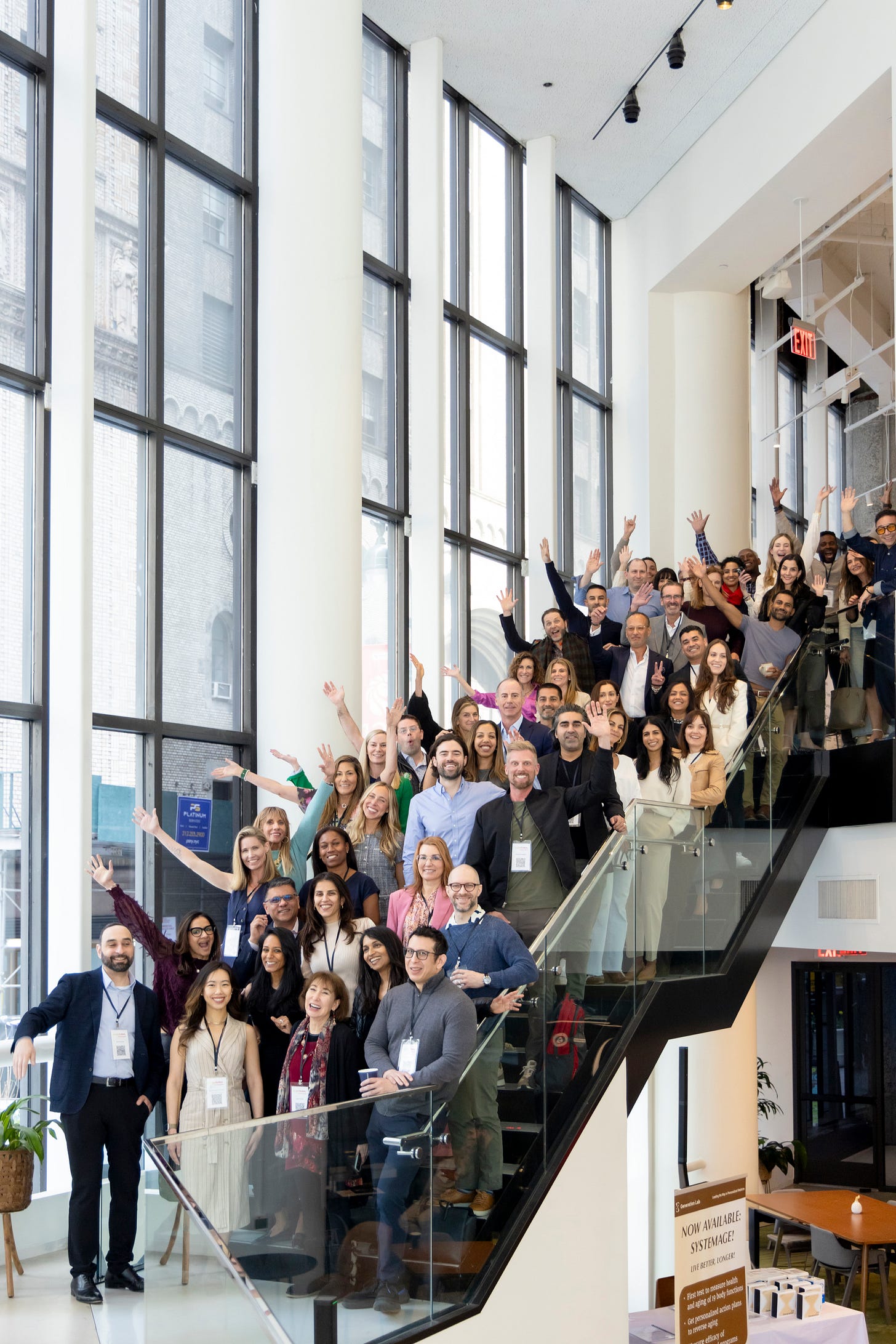
Why “Longevity Docs”?
Because we believe longevity is not a specialty — it’s a human right.
The future of medicine is proactive, not reactive. It's interdisciplinary, not isolated. It’s collaborative, data-driven, and deeply human. And it starts with us — the physicians who dare to redefine what care looks like across the decades of a patient’s life.
“Longevity Docs” isn’t just a name. It’s a statement of purpose.
Our Ecosystem
Physician Network
A trusted global collective of longevity-focused doctors exchanging protocols, referrals, and real-world clinical outcomes.Education & Certification
Earn your Certified Longevity Doctor™ designation through our advanced curriculum, live masterclasses, and continuous learning tracks.Decentralized Research
Lead or participate in multicenter clinical trials and patient registries, accelerating evidence generation for healthspan optimization.Strategic Advisory
We partner with vetted longevity companies, life-science, tech, and clinics to help them grow.Global Events & Experiences
Access exclusive gatherings like the NYC Mastermind and the Cannes Longevity Summit & Awards
Who It’s For
Doctors → Join the club, get certified, grow your practice
Health Systems → Implement clinical longevity programs
Brands & Startups → Validate products, find advisors, run trials
Investors → Gain early access to insights, doctors, and deal flow
We’re not just witnessing the transformation of longevity medicine we’re building it. Together.
Subscribe to the Longevity Docs Newsletter
Stay connected with the backstage of the Longevity Docs community, a network of over 500 physicians spanning 50 countries, united in our mission to democratize longevity medicine. Explore the latest in evidence-based longevity care, gain exclusive access to physician insights, and join us in shaping the future of this transformative field.
Newsletter Disclaimer:



